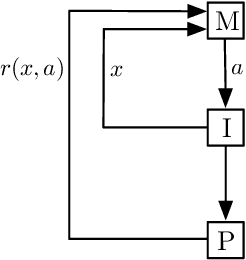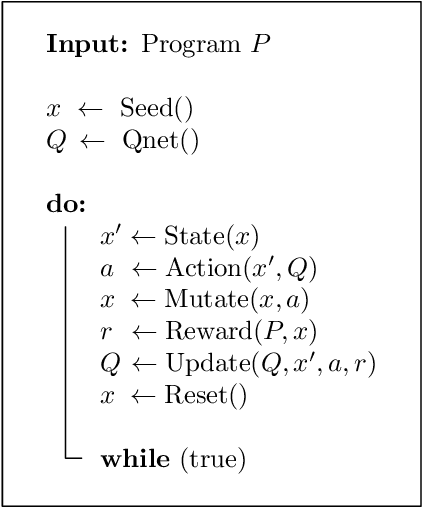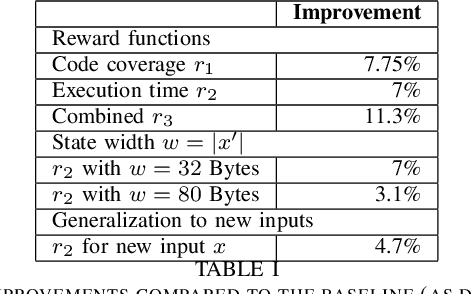Deep Reinforcement Fuzzing
Paper and Code
Jan 14, 2018


Fuzzing is the process of finding security vulnerabilities in input-processing code by repeatedly testing the code with modified inputs. In this paper, we formalize fuzzing as a reinforcement learning problem using the concept of Markov decision processes. This in turn allows us to apply state-of-the-art deep Q-learning algorithms that optimize rewards, which we define from runtime properties of the program under test. By observing the rewards caused by mutating with a specific set of actions performed on an initial program input, the fuzzing agent learns a policy that can next generate new higher-reward inputs. We have implemented this new approach, and preliminary empirical evidence shows that reinforcement fuzzing can outperform baseline random fuzzing.
 Add to Chrome
Add to Chrome Add to Firefox
Add to Firefox Add to Edge
Add to Edge